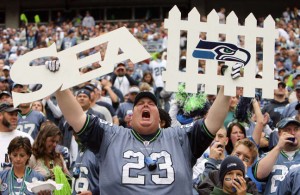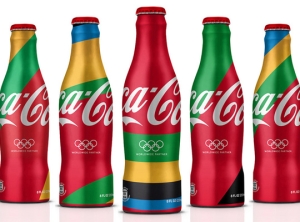All marketers face the dilemma of how to promote their brand to consumers creatively and memorably. Today, there are so many platforms to advertise ranging from television, internet, print, radio, and out of home (billboards, bus skins, etc). But among competitors making equal or more noise, how how will advertisers get their brand to stand out? Sponsoring a sporting event (sports marketing) is a nontraditional out of home marketing tactic that many companies believe to have profitable commercial promise. But as several companies attempt to insert their brand in arenas everywhere, how much do we undercut the lucrativeness of these “nontraditional” advertising spaces? I spoke with UPS senior Trey Chenier about his Econ Thesis about whether the outrageous price tag attached to sponsoring sport event was worthwhile at all.

HR: What are companies’ motivations for sponsoring sporting events as opposed to traditional marketing strategies?
Sponsoring a sports event is an nontraditional marketing strategy because it’s differentiated by location and its target audience. Sporting events attract a certain type of consumer. Sports goers are ecstatic and fanatic about their teams. They want to absorb every detail of their surroundings to create an epic memory. Fans’ excitement makes them more attentive and receptive to advertisements versus traditional media strategies that are naturally passive and unmemorable.
HR: In your thesis you coined the term “sponsorship yield” (SY). Can you explain what this means?
I used sponsorship yield as a measure of return for investing to sponsor a sporting event. In other words, it measures the net gains from sponsoring sports events.
HR: Your thesis implies there are two dimensions to SY, a psychological and financial component. What does your research and others’ have to say about financial SY?
Much of the research I found evaluates the worthiness of corporate sponsorships based on stock price reactions after the sponsorship announcement. While changes in stock prices is a good measure, the literature I found doesn’t connect the initial cost of obtaining sponsorship rights with subsequent changes in stock prices. In my thesis I incorporated the initial cost of sponsorship in tandem with changes in stock values to understand true financial returns gained from these corporate activities.
HR: And then there’s the psychological aspect of SY. Can you briefly talk about what this means?

The psychological component refers to the effect on consumer behavior, attitude, and perception of the sponsoring firm. A sponsorship’s effectiveness can be measured by brand fit, or the suitability of the firm’s brand and the sponsored event. “Congruity” is the notion that what consumers observe in sponsorship behavior is what is expected. An example of brand congruity is Nike sponsoring a basketball game because the association between Nike and sports makes sense. “Incongruity” refers to a disconnect between the sponsor’s brand and the event. An example of this would be Nike sponsoring a wine tasting; it wouldn’t make sense based on what Nike does. Interestingly, one school of thought is that incongruous sponsorship is more memorable because the consumer’s puzzlement will make the brand easier to recall.
HR: In your study, what corporate sponsors and event did you look at when evaluating SY?

I decided to look at the 2012 Summer Olympics in London because the high viewership volume makes this event seem lucrative to sponsor. Additionally, an agreement to sponsor such an international event would make changes in stock prices more pronounced. I examined 8 sponsors, which were Coca Cola, General Electric, Dow, McDonalds, Omega, Panasonic, Proctor & Gamble, and Visa.
HR: What were your study’s results?
I calculated that for 7 out of the 8 companies, stock prices went down for 1, 3, and 30 day period. In addition to the seismic cost of the initial investment, I concluded 7 Olympic sponsors had substantial negative results. Visa was the only company to exhibit positive gain from Olympic sponsorship.
HR: What conclusions did you draw about your topic?

I realized event sponsorship is kind of like the Prisoner’s Dilemma. If sponsorship marketing rights were reserved for just one firm alone, they would enjoy magnificent benefits from heightened visibility. But sponsoring events doesn’t work like that. If one player does it, it’s in the best interest for others to sponsor events in order to capture market share and undercut the benefit of the initial sponsor. What ends up happening is that everyone’s optimal choice is to sponsor these events although this saturates the overall benefit of sponsorship. It’s a doomed if you do, doomed if you don’t scenario.
